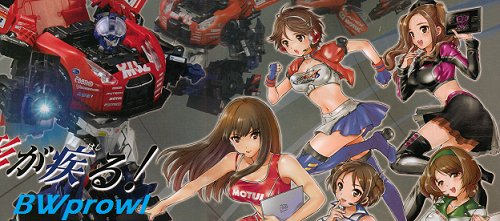Age of Ultron #7:
No real suprises in this issue. Sue Storm and Wolverine get back to the newly altered present and have obligatory awkward moments with the new timeline's Avengers (using the name "Defenders".) Barring alternate/diverging timeline bull-shittery, it appears that Wolverine's plan to kill Pym (preventing Ultron from being built in the first place) succeeded. In the next few days, it is a safe bet that somebody is going to list all of the changes, and somebody else will probably try to work out the hows and whys of those changes relative to Pym's death. But, this status quo is going to last less than 3 issues, so I am not really going to concern myself. Bendis' dialogue for Wolverine and Sue Storm (particularly the former) seems "off"-ish. But, that is a minor problem in this type of story. And, Bendis has added enough nice touches that this series is not a total waste thus far.
Ultron's sucessful attack came from the 616 future (and is depicted counter to genre conventions). And, when Woverine and Sue Storm get back to their (altered) time, they have confirmed analogues in that time. Storm's is mentioned, but not shown. And, Wolverine's is clearly visible. This effectively makes the "real" Sue Storm and Wolverine invaders in the current status quo.
Grade: B/C
Iron Man #009
After the events of "God Killer", Stark decides to hunt Recorder 451 for his role in the destruction of the space station. And, this issue leads in to what is going to be a significant re-write of Iron Man's origin. Gillen is fast becoming one of my favourite writers. Besides the general fun of "Iron Man in spaaaaaayce", Gillen can set and pace a scene and add just enough high concept to an even to make this book worth following. This series feels like filler, but it is worthy filler. Gillen, and possibly the artist, are clearly "Transformers" fans. In addition to Death's Head showing up (and being ~30 feet tall), there is a pair of chromites (from US issue 52) in the background of one of the panels.
Grade: B/C
I mean, alright--I'll give you that they can probably write Superman and Batman comics to the end of time. Those characters are so iconic and well-known that there can be different permutations of them that are still unique and have new ideas for probably another 100 years. But then you have your second-and-third tier guys who, it's just like...
In theory, DC could get away with producing a few "Superman" comics a year as one-shots or "Elseworlds" and manage to protect their copyright.
But, there are there are too many fans would would howl and whine about not being able to get Superman comics every few weeks and that there is not enough consistency between the stories. (And, making fewer comics means that there is less occassion for casual non-fans to buy comics.)
People get attached to characters and don't want to see them killed off.
Yeah, those fans need to grow the fuck up.
Sparky wrote:I have an English degree, so I know all about literary criticism.
Gomess wrote:
Me too, oh no, how will we judge which of us is right now?? =p And unfortunately, the Information Age has made it more than clear that "having a degree" =/= "knowing ALL about a subject". I've met near-uneducated people who are able to cut to the quick of a media text more than many professors I know. Your qualifications are irrelevant, especially if they restrict your views.
BW Prowl wrote:
Wait, so does he have a degree in studying the English language, or in being English?
(I can't say anything, my degree is in Liberal Arts. I literally majored in Going To College)
Yeah, we all make mistakes.
Anyone who thinks a story doesn't have to end has a problem understanding the point of stories.
The purpose of stories is not going to be fixed. It is going to change over time.
In this case, the stories are being produced for commercial purposes. Audiences respond to the same thing (Iron Man or Batman in this case), so that is what gets produced. Every so often, there will be something really good. But, the quality of the product is less important than the fact it has a recognized character in it.
Do you like comics, or do you like comics with Iron Man in them?
I think if the comics adopted that more idiomatic approach to telling stories with the characters, you'd see the teams behind them taking more creative approaches to using them, and new readers getting on-board because doing so wouldn't be so daunting because of all the backstory that got in the way.
The problem with that business model is that it would make it harder to follow up on or build from a good idea. And, it would not foster consistent readership.
I would like to see one of the big 2 experiment with an ongoing book with a constantly changing status quo, and where the big changes would lead to another change, rather than a change back. The "Spawn" series arguably does this pretty well. But, I want to see Marvel or DC try it.
Not the best analogy for most comic characters. Most characters are unique, and defined as much by who they are and how they act as they are by their power sets and costumes. Star Trek is about a larger universe and a set of concepts, and that's why it can work without Kirk as the central character.
No, the real reason they let Kirk (and later Data) die was because the damned actors were getting too old to play the characters correctly.
And, in both cases, fans howled and raged.
Dom
-the problem is mostly unique to comics and comics fans.....
